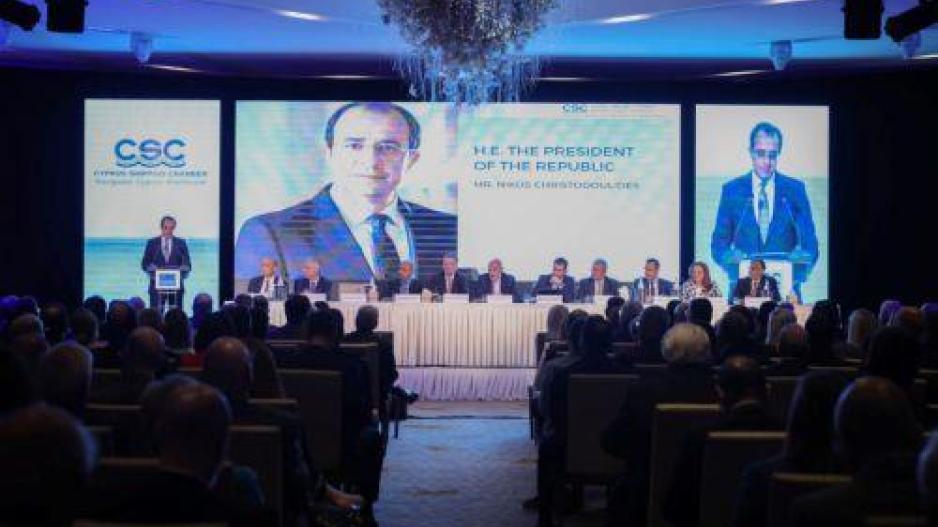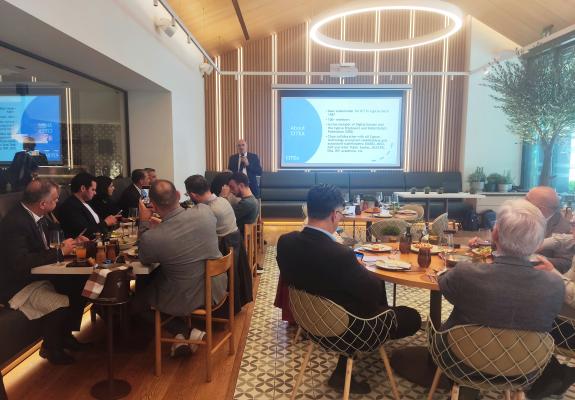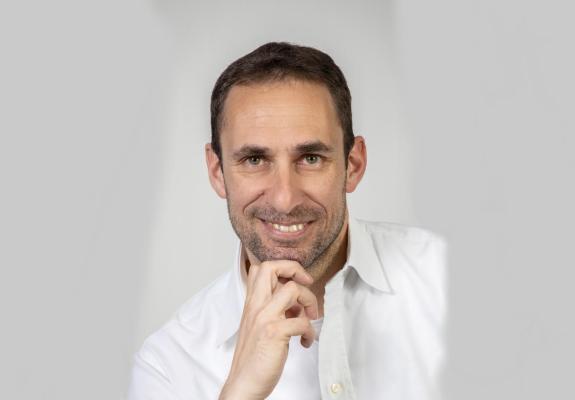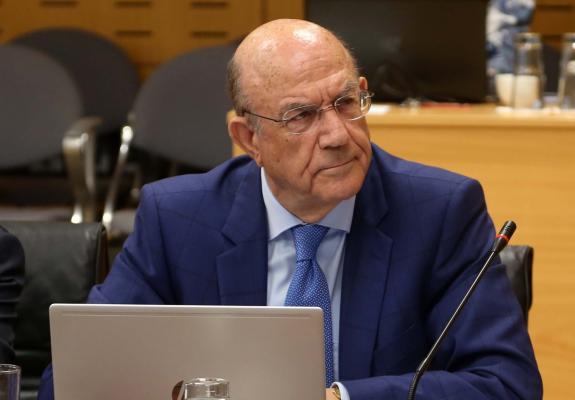Christodoulides speaks on the Cyprus’ economy and announces receipt of first US sanctions list
Speaking at the 13th Nicosia Economic Congress, the President of the Republic confirmed the relevant information that was made public earlier today, in relation to the US sanctions list.
The Cypriot authorities have received the first info package from the US, in regard to the natural and legal persons that are included in the American sanctions list. Two more packages are expected in the coming period, the President of the Republic, Nikos Christodoulides, said. He added that the first package has already been sent to the Attorney General.
President Christodoulides revealed that he spoke with the Attorney General this morning and noted that "all the information we received will be sent to him today, so that the responsible authorities can begin processing the relevant intelligence. At the same time, we are waiting for the other two info packages to be sent from the US."
The President of the Republic reiterated that preserving Cyprus’ credibility and reputation as a business and financial center is very important; especially after the recent sanctions imposed by the US and the United Kingdom on Cypriot service providers.
Addressing the Congress’ delegates, President Christodoulides highlighted that "it is urgent to approach the matter with the appropriate seriousness and to do everything possible to prevent anyone from defaming our country". He then continued by expressing his certainty that the Congress’ delegates share the common need to put an end to the issue and move on to a new era.
Referring to the economy, Mr. Christodoulides said that it showed resilience and went through a strong recovery process in 2021, after the coronavirus crisis. This positive trend carried on throughout 2022, despite the challenging global environment due to the Russian invasion of Ukraine. Specifically, he said, Gross Domestic Product increased by 5.6% in real terms in 2022, following a substantial increase of 6.6% in 2021.
The President revealed that based on the government's macroeconomic forecast, growth is expected to follow a positive trajectory, albeit at a slower pace of around 2.8% in 2023. Additionally, despite the risks associated with the international economic environment, inflation is expected to slow down to around 3.2% in 2023, compared to 8.1% in 2022.
"Through preserving our political relations, on the one hand, with Middle East, Eastern Mediterranean and Gulf countries, as well as India and Japan and on the other hand through establishing strategic partnerships with the US, we will soon be able to publicly announce some significant foreign investments in Cyprus," he emphasized.

Afterwards, the President referred to the National Recovery and Resilience Plan, which includes key policies for sustainable development and bolstered competitiveness. He added that "electoral cycles should not influence a country's economy, planning and vision for the future”.
Later, he talked about the importance of digital transformation and green transition and explained that the adverse effects of climate change are already being felt by the Cypriot citizens. He added that the Ministry of Finance has collaborated with the Economics Research Center of the University of Cyprus to develop a comprehensive report on the climate change impact on the Cypriot economy. Its aim is to bolster investments in renewable energy sources, sustainable transport and energy efficiency.
Additionally, he highlighted the government’s intention to align Cyprus’ tax policy with the European Green Deal framework, especially in the context of promoting the upcoming green tax reform. He then noted the urgent need to move forward in implementing the ongoing justice reform without any further delay.
Furthermore, he mentioned that in light of the increased inflationary pressures, the government aims to provide socially targeted economic aid to vulnerable groups, while also maintaining fiscal discipline. It was within this framework, he concluded, that “we made the decision for a zero VAT rate on basic necessities, such as bread, milk and baby food”.






